After earning a Bachelor’s degree in Product Design, Rabea Gebler discovered that she enjoyed being part of the making process of objects. After carving her first spoon from wood, her deep fascination for the material has never waned. She enjoys working with hand tools, leaving traces of axes and knives, adding her own narrative to the story told by the wood.
With a design degree in her pocket, the German-born artist followed her husband to Japan, where he was about to embark on a journey of ceramic studies.
With her own passion for wood and wooden spoons, she sought a craft journey of her own and moved deep into the Japanese countryside. There, she studied the Japanese craft of lacquerware at a local craft school run by a national living treasure of woodturning. Specifically, the art of urushi lacquering caught her interest, and she learned how to harvest the natural material from trees, apply it to bowls and plates, decorate them with intricate gold and silver-covered designs, and use it to repair ceramics with the art of Kintsugi.
Rabea also spent two years studying the making of Wagatabon, a distinct wooden tray originally made in Wagatani village, which now lies under a dam only a few hundred meters away from her workshop. Now reunited, she and her husband share a small workshop in Yamanaka Onsen, where they create ceramic and wooden tableware, both with and without natural urushi coating.
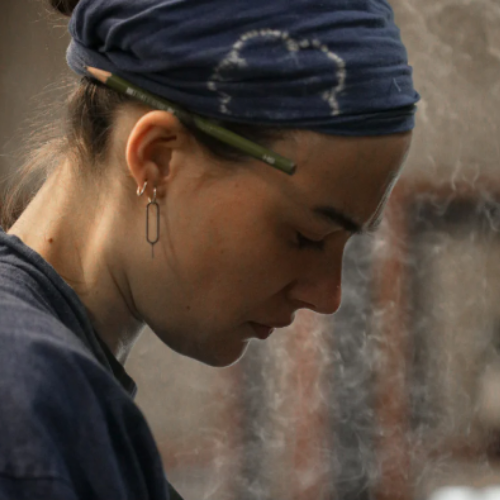
With a Bachelor’s degree in Product Design, I noticed I enjoyed being part of the making process of objects. After carving my first spoon from wood, my deep fascination for the material has never left me. I enjoy working with hand tools, leaving traces of axes and knives, adding my own narrative to the story told by the wood.
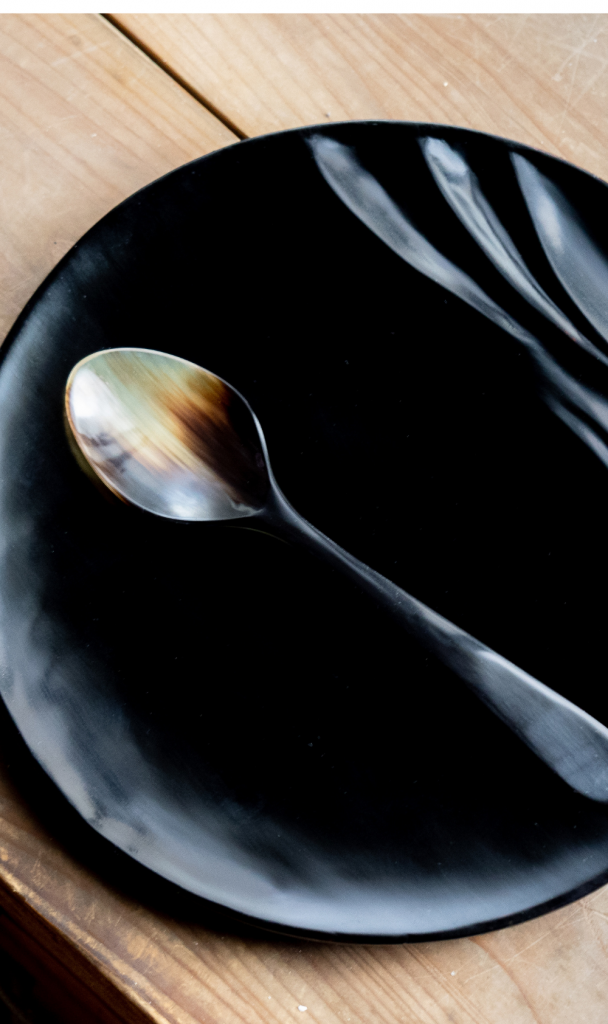
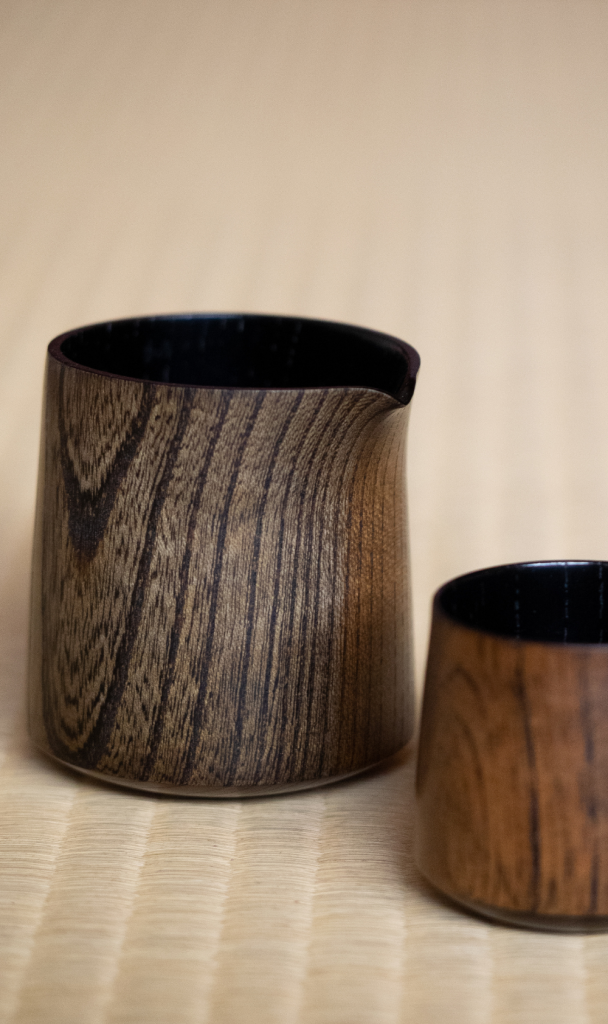
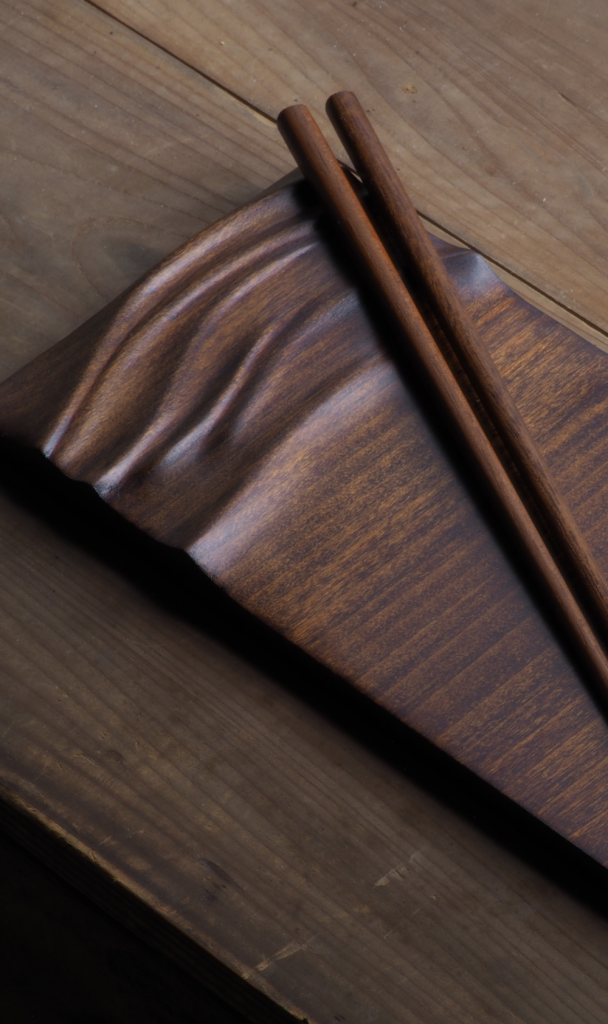
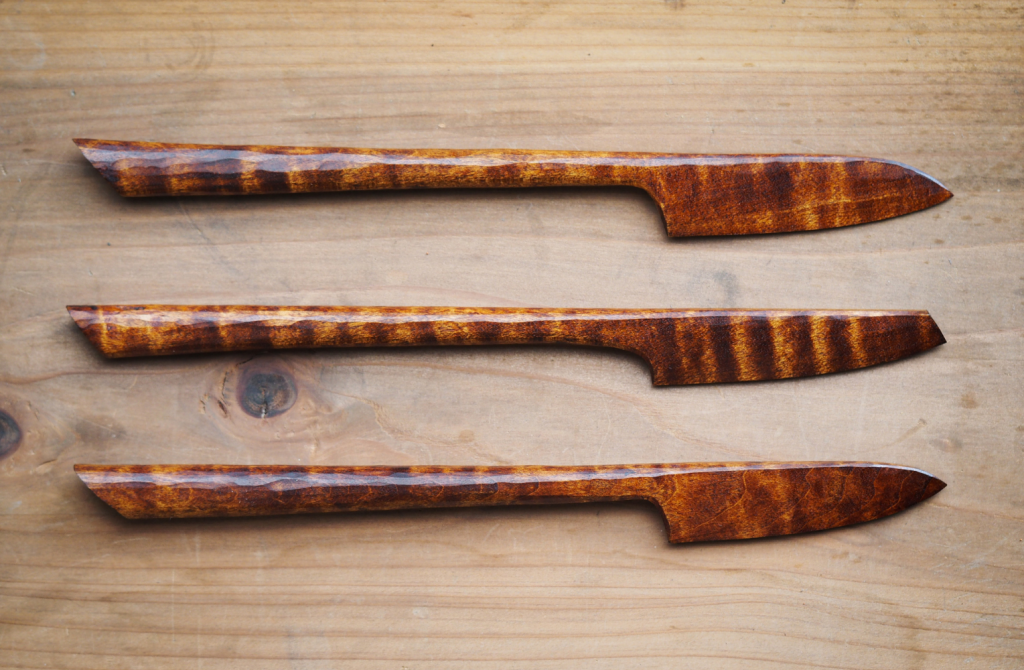
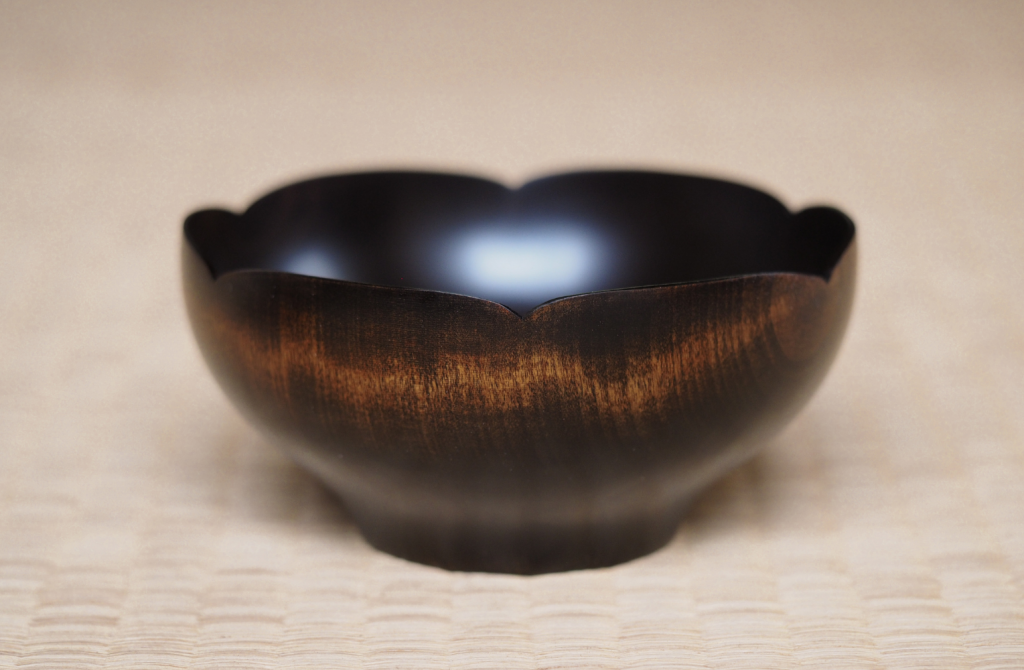
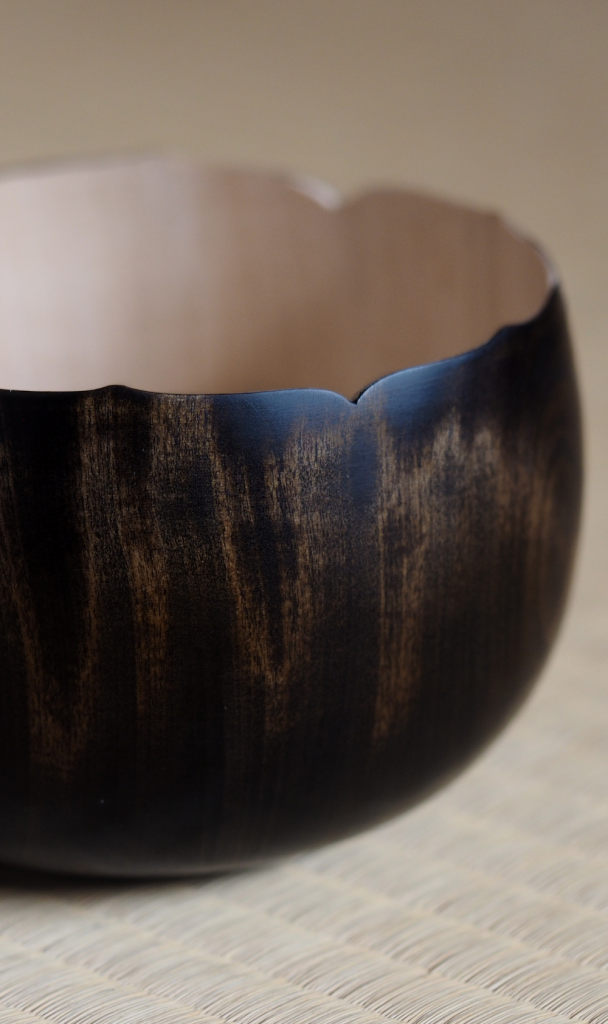
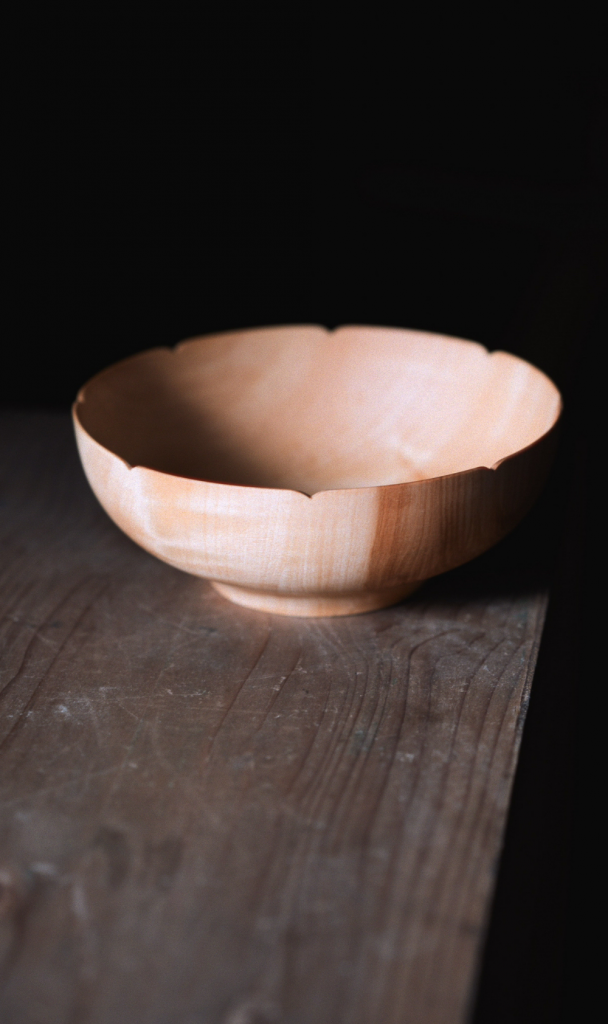
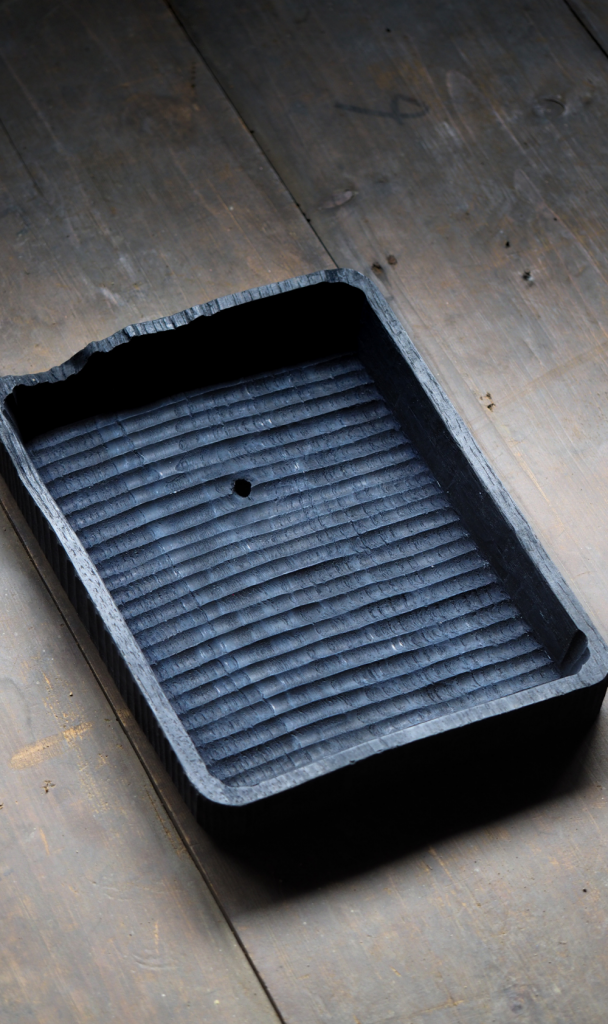
Speak to us about Rabea Gebler's work.
If you would like to learn more about Rabea Gebler’s work, or have a project in mind, please get in touch.
